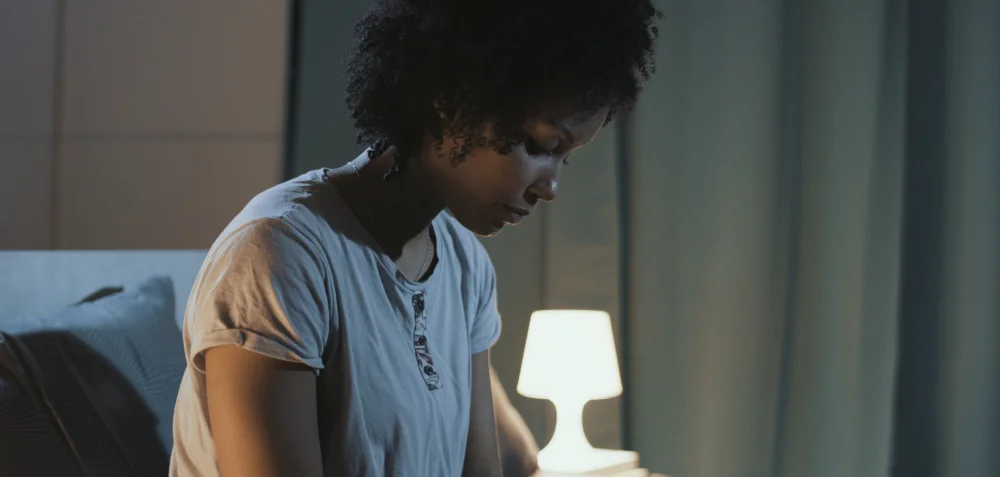
He stopped, officially, a year ago. Told his friends in the group chat that he was done with it. Deleted the app, even screenshot the moment as proof. There were a few emojis, some claps, a bit of jealousy disguised as support. “Strong move, broer,” one said. “I should do the same.” For a few days, he walked lighter. Like someone who had put down a weight that wasn’t just on his wallet, but in his chest. He didn’t miss the slips, the constant checking, the way it took over weekends and distracted him mid-conversation. He even started running again, cooking more. It felt like winning in a different way.
But the phone stayed. So did the boredom. The quiet stretches between plans. The part of him that twitched for a small rush, not chaos, just control. Three weeks later, on a random Tuesday, he opened a new account under a new name. Not his own. Not even a real one. Just a borrowed identity with a temporary email and a number he kept for backups. He didn’t tell anyone. Didn’t even write it down. Just logged in and started again. Smaller. Quieter. Different.
Ghost mode, that’s what he calls it now. The way he plays without presence. Without proof. Without the conversations, the screenshots, the loud frustration when a last-minute goal ruins a 7-leg slip. He plays alone, in silence, between meetings, while boiling water, when everyone else in the house thinks he’s checking emails. He no longer celebrates wins. Doesn’t complain about losses. The game still exists, but only in the shadows. Hidden between other tabs, always one swipe away from invisibility.
There’s a particular kind of gambling that comes after the public part ends. After the drama, the near-interventions, the promises. This is what’s left. A private, invisible version. No one suspects. That’s the trick. That’s the punishment.
He tells himself it’s under control. That it’s better this way. That he’s not chasing wins, just staying sharp. His stakes are smaller now. R10, maybe R20. He doesn’t use the bank card with his name. Keeps a side account just for this. It’s all clean. Calculated. Logical. But the truth is, it’s lonelier than it’s ever been. There’s no community in ghost mode. No laughter when everyone loses on the same slip. No drama. Just the quiet knowledge that he said he quit, and didn’t.
He’s not the only one. There are others. You can feel it in the forums, the way people speak vaguely about “taking a break” or “playing light.” The way no one admits to relapsing, but somehow always knows the latest odds. People who claim they only read the tips “for curiosity,” but somehow always know when a match swings in the 89th minute. They’re all playing. Quietly. Alone. Off the record.
Sibongile works at a call centre in Midrand. She deleted her betting apps after her mother found a losing slip in her bag and cried. But she still bets. At night, with a different app, one that doesn’t send notifications. She says she’s more careful now. She calls it her “shadow play.” She never bets big. Never more than R30. It’s just for stress, she says. Just to keep the edge off. Her friends think she’s done with it. She lets them believe that.
 What makes ghost mode so potent isn’t the hiding, it’s the silence. You lose differently when no one knows. You win differently too. The dopamine still hits, but it doesn’t linger. There’s no performance. No audience. No accountability. Just numbers, flashing lights, and a wallet that never quite empties but never quite fills. You’re not chasing a jackpot anymore. You’re chasing stillness.
What makes ghost mode so potent isn’t the hiding, it’s the silence. You lose differently when no one knows. You win differently too. The dopamine still hits, but it doesn’t linger. There’s no performance. No audience. No accountability. Just numbers, flashing lights, and a wallet that never quite empties but never quite fills. You’re not chasing a jackpot anymore. You’re chasing stillness.
He sometimes wonders what he’s really doing. If he’s playing to win, or just playing to not feel anything else. Work is unstable. Rent goes up every year. His dad’s health is getting worse. His relationship is stuck in polite routines. The game feels like the only thing that reacts to him. If he presses spin, something happens. Not always good, but something. In ghost mode, the game is always listening.
There are moments when he wants to come clean. Not in a dramatic confession, but in a quiet sentence. “I still play sometimes.” But the words don’t come. Not because he’s ashamed, he’s gone past shame, but because he knows what people will say. They’ll tell him he’s back where he started. They’ll treat it like failure. They won’t understand the difference between public madness and private survival. Between addiction and a coping mechanism he can’t name.
He tracks his bets now, not on an app, but in a text file with no label. He adds notes. “Over 2.5, but team lacked energy.” “Cashed out early, avoided loss.” “Trusted gut. Good result.” He doesn’t share these wins. Doesn’t try to convert anyone. Doesn’t want advice. He just needs the system. The structure. The click of buttons that gives him a sense of movement in weeks where everything else stands still.
He knows this isn’t a life. He knows it can’t stretch forever. But for now, it keeps the dark from creeping too close. It’s something to hold. Something to do. Something that lets him disappear for a while, without leaving the room. Ghost mode isn’t glamorous. It isn’t dramatic. It’s not a movie ending or a rock-bottom redemption. It’s just what happens when quitting isn’t the end of the story, when silence replaces support, and the game lives on in the corners of your phone, your mind, your nights.
He’ll probably stop again. Or maybe he won’t. Maybe he’ll keep playing in the shadows. Small bets. Careful taps. No slips to be found. Just a man alone with the odds, and a version of himself he promised he wouldn’t be anymore.







